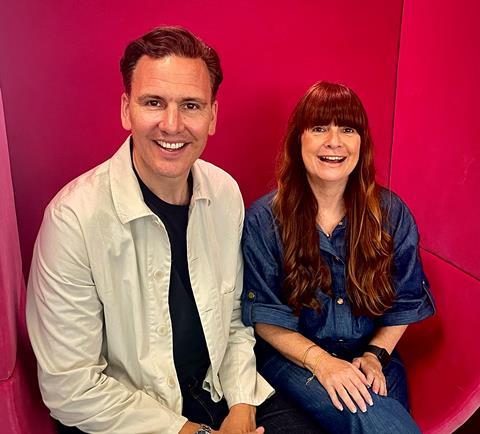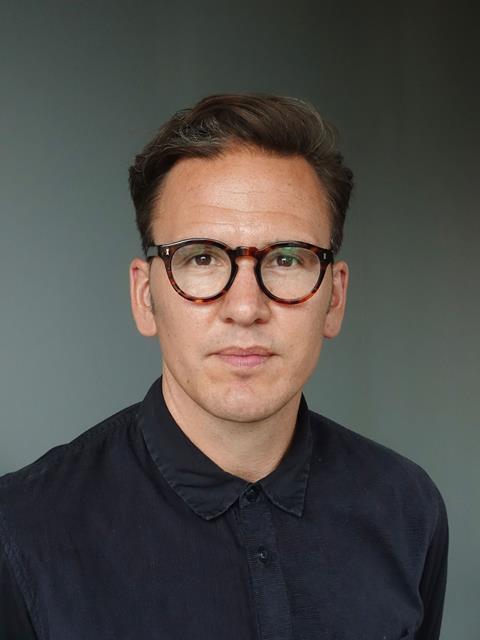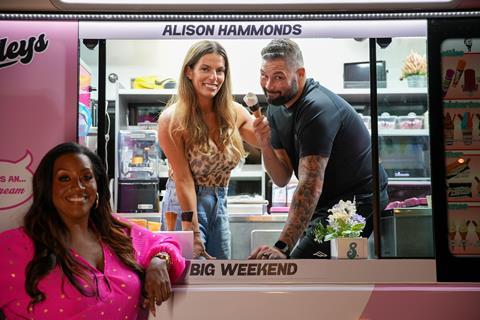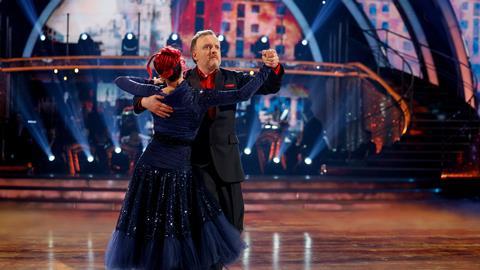Karl Warner and Suzy Lamb lay out ambitious strategy to become unscripted heavy hitter on the global stage
Karl Warner and Suzy Lamb’s shared history runs deeper than most.
Rewind a quarter of a century back to the early noughties, and you’d have found the duo working together on Dear Father Christmas, a show designed to capture the festive mood in all its glory.
“Lorraine Heggessey was BBC One controller at the time and we were pitching this show in April or something like that,” explains Warner, the former Channel 4 exec who was installed as exec vice-president of UK entertainment and digital development at BBCS last year.

The programme, continues Lamb, involved producers intercepting children’s letters – “with the permission of the Royal Mail, of course” – to make their wishes come true.
“We’d converted a room into a big grotto,” adds Warner, “and we had our Father Christmas, who proceeded to sit Lorraine down on his lap and ask her what she wanted for Christmas. We thought it was an absolute disaster.”
Warner and Lamb didn’t need to worry: the show was commissioned, marking the start of a relationship that has seen them working on some of the world’s best known entertainment brands ranging from Strictly Come Dancing to The Weakest Link.
Their focus now is similarly ambitious.
“With everything that we do, the aim is to create, deliver and produce the best shows that will have that long tail that enables them to become international hits,” says Lamb, managing director of BBC Studios Entertainment Productions.
Her remit, taken on last year following a merger of Entertainment & Music and Factual Entertainment & Events units, is vast and includes production oversight of more than a thousand hours annually, ranging from Strictly Come Dancing and Antiques Roadshow to coverage of music festival Glastonbury and quizzes.
“We’ve got shows like the Weakest Link and there’s The Answer Run, our daytime quiz with Jason Manford, which was the biggest launch in a decade of a quiz in daytime [for the BBC], that was really brilliant for us.”
And it is that type of success that the duo is looking to deliver repeat under BBCS Productions chief exec and chief creative officer Zai Bennett, to whom they both now report. The strategy boils down to IP iteration and development under Warner, with Lamb picking up the baton for production. International sales – hopefully – then follow.

Yet the method for achieving this has required a considerable reorganisation. “In terms of development, we are breaking away from a model that Studios has worked to for a long, long time, and we’re doing that partly in response to the market and because of what people are telling us they are fixated on buying,” says Warner.
Instead of a single development team, BBCS is rolling out a three-pronged division made up of pre-existing entertainment unit Rebel Rebel, and two new labels that will focus on reality and fact ent.
The vision, Warner says, is that the labels “will look like indies, they will move like indies but then they will deliver like absolute powerhouses because they’ve got Suzy and all her brilliant teams to take on those shows”.
Former Optomen exec Mel Bezalel has been drafted in to provide central development support across all three labels, while Warner and Lamb are focused on using BBCS’s clout to ramp up relationships on all levels.
“This set-up helps us to maximize the resources that we’ve got but also the expertise, we’ve got some incredible production and creative directors and exec producers, and this way of working will allow them to feed ideas in more efficiently, but also to work really closely with the production side.”
It also streamlines operations, as Warner openly admits, and means there is greater accountability and focus. “You avoid too much duplication, you can see clearly who’s doing what and when, that streamlines the pipeline for the UK business and the international business as well.”
For Lamb, the reorg comes at a time when her division is riding high: aside from The Answer Run’s return, she highlights recent Bafta wins for the BBC’s Strictly Come Dancing and its coverage of Glastonbury, as well as UKTV’s increased order for Pete Wicks: For Dogs’ Sake.
The win for Strictly, which took Bafta’s Moment of the Year award for Chris McCausland’s waltz, is a particular highlight because it reflects how BBC shows can impact an audience, Lamb says, with more visually impaired people now taking up dancing.
Reality of development
The area set to receive most attention from Warner’s new-look development strategy is reality, where much of the focus is being placed.

More than 50% of his development spend will be on reality – amounting to a six-figure sum, Broadcast International understands - and it won’t just be in the UK but globally. “Reality will feed that international side of things,” Warner says.
And if he’s putting a lot in, he’s expecting a lot out.
“Large scale” formats are being targeted, with Warner referencing juggernauts such as Big Brother, Married at First Sight and Love Island. “Those are the sort of premium end reality shows we want, but then there’s also the fact ent side too, looking at the Bake Offs or the Race Around the Worlds, we’ll absolutely be in that space too.”
Dating will also be developed, but the focus on scale is clear. “It’s a broad spectrum but the important thing for us is that we’re not just trying to create shows. We’re trying to create brands, and these are shows that are scaleable and returnable,” he says.
Warner’s three development ‘indies’ are being tasked with coming up with ideas, but he adds that it is an increasingly global play.
“We will partner as well, either with producers or channels even, and we’ve started doing development deals with broadcasters in the Nordics and Asia, so we’re always looking for the best ideas wherever they come from. But the priority is that we own the IP.”
Warner describes podcasts as a “huge area of potential” and he will also be tapping into his former life at Channel 4, where he was head of youth and digital, to explore ideas from YouTube.
“I’m really keen that we develop a YouTube proposition that allows us to not only create a new revenue stream but also to incubate new formats and develop new talent, it’s absolutely a source of inspiration.”
While reality will receive considerable attention, the focus on fact ent is for “slightly more purposeful editorial” and social experiments that offer more factual underpinning, while development of fresh entertainment IP will also be a constant.
Tapping up talent
YouTube will also provide opportunities for Lamb once shows are greenlit, with the production chief highlighting the appeal of using influencers and creatives on shows to benefit both parties.
She points to BBCS-produced Boss Pitches with GK Barry and Nella Rose (shortlisted for a Broadcast Digital Award) for Channel 4.0 as an example of innovation, and says talent can be given “multiple opportunities” because of BBCS’s heft and range of output.
“It’s a key point - the offering is unique in Studios,” adds Warner. “Come work with us and you can be on Strictly, or The Weakest Link, or go and make a documentary or a specialist fact ent show, or be on EastEnders. It’s a pretty extraordinary opportunity.”

BBCS’s relationship with the BBC also offers a considerable launchpad for global successes, but both Warner and Lamb say that while international remakes are a key part of the strategy, they are not creating shows with that top of mind.
“We won’t be asking is this show going to travel to 24 markets, we’re thinking about the simplicity of the proposition,” Warner says. “If anything’s too local we might be mindful of that, but our first priority really and truly is to get shows away in the UK, that’s hard enough.
“I found when I was commissioning that you can talk people out of an idea – you can ask ‘will we get ten seasons of this?’ or ‘will it travel. The first thing is to get the show commissioned and to make it a hit, then you look at distributing it, at scaling it.”
“And we work really closely with our international offices,” adds Lamb, with briefs from buyers around the world being fed into the BBCS machine.
Lamb describes broadcasters as being “a real priority”, but adds that landing shows with the US-based streamers is also in their sights. And while the delivery medium may be different, the types of shows being asked for are increasingly similar as broadcasters shift attention to the own VOD platforms, Warner says.
“Any reality that has natural drama and humour you can amplify through clever formatting is the sweet spot,” he continues, adding that the success of LOL on Prime Video in the UK and around the world has opened eyes to the potential of comedy.
“That narrative comedy end is really interesting, because people are now starting to think what’s a panel show that you can arc. That’s brilliant for the comedy community which for a while has felt neglected,” he says.
So what made Prime Video UK’s version of LOL such a success?
“Well, I suspect they had a really great budget,” jokes Lamb. “But they had that golden success with Bob Mortimer, what a gift he was and we all just kept coming back for more and more, willing him to win.”
LOL’s success underlines Lambs’ comments about talent, but also the ability of the right format to travel globally. BBCS is also looking globally for IP, with formats boss Sumi Connock scouring suitable titles.
Recent pick-ups have included Nordic gameshow Nation’s Dumbest, from Norway-based Montreux Film and Fjernsyn, which is understood to be at the centre of advanced conversations about a UK remake, but Warner is also looking at using the international market to launch shows.
“Norway is a really interesting market because they are taking risks on paper formats that not everyone is here,” he says, highlighting Seefood TV’s adventure reality show The Box, which is being remade in the UK for ITV and has been picked up across Europe.
All this talk of ambition comes against a fairly muted unscripted landscape, however, with some producers talking of risk appetite levels at all-time lows.
“It won’t ever be what it was,” says Lamb, “that is a reality, but there is much more optimism and we’re getting briefed much more.”
Warner agrees. “The industry is definitely picking up, we’re seeing more things getting commissioned, it’s interesting that Channel 4 is buying much more - that is a good barometer of how buoyant the industry is.”
For Warner and Lamb, creating a united, streamlined operation that can adjust to industry shifts is key.
“We’re not chasing anything,” says Lamb. “We’re being really strategic about where the opportunities are – because there aren’t as many opportunities as there have been - but we’re really aligned.
“It would be easy to go and chase some of the smaller things, but we don’t want to do that. We want to create those next big formats, those global formats and we’re honest with each other.
“If we don’t agree with each other, the beauty of this 25-year relationship means we’ll really tell each other.”









No comments yet